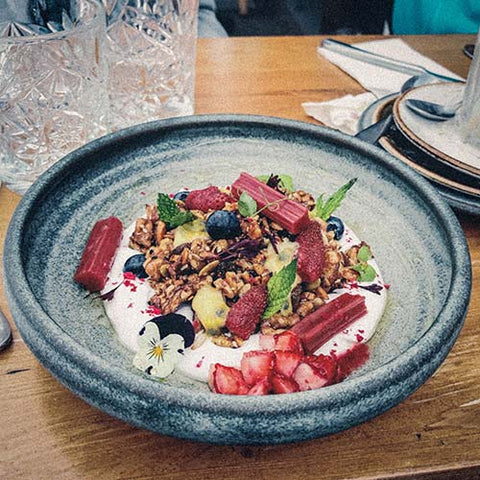Rhubarb produces some delicious stalks for pies but the leaves should not be eaten because of their poisonous content. So, can these poisonous leaves can be safely composted?

Just like other poisonous plants such as Ivy, rhubarb leaves can be safely composted. Whilst rhubarb leaves do contain oxalic acid (a corrosive and a kidney toxin), oxalic acid has no significant effect on soil micro-organisms and will not affect microbial activity. Although the concentration of oxalic acid is thought to increase with leaf age, actual levels are low and molecules do not survive well outside of plant cells. Consequently, adding the leaves into the HOTBIN should have a negligible effect on both the HOTBIN’s activity and the safety of the resulting compost.
What is the Best Way to Compost Rhubarb Leaves?
If you do decide to compost rhubarb leaves, we would strongly advise wearing gloves and cutting up into smaller pieces before adding them into the HOTBIN, this will help increase the surface area available to the hot composting bacteria and aid their rate of decomposition.




